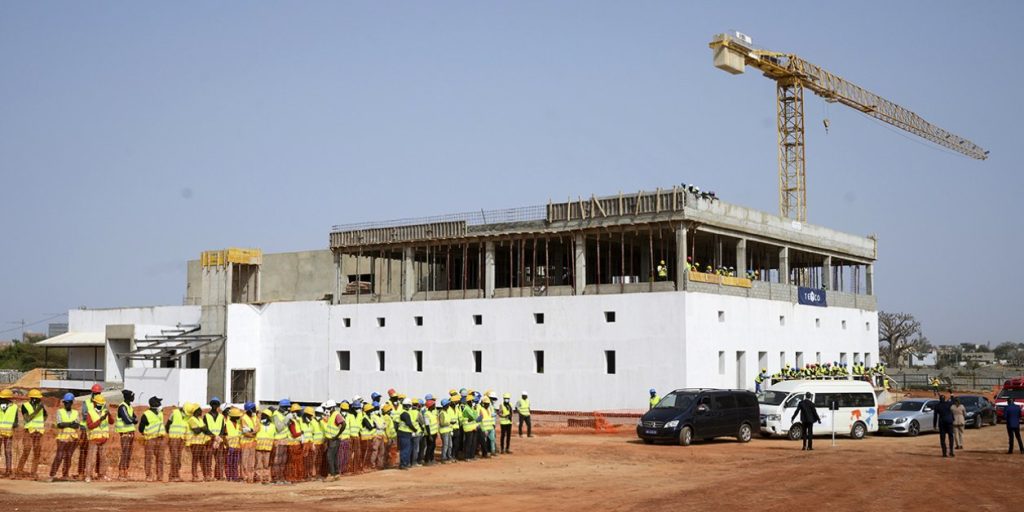
Francophonie, the future path to a strong and unified science – Jeune Afrique
Not all the world’s decision-makers derive the same benefits from scientific knowledge. Indeed, our location on the globe and our mastery of languages or the solidity of our research networks greatly influence our access to high-quality scientific information, within deadlines compatible with political decision-making. These disparities are complex, and are rooted, among other things, in the way scientific activity has become globalized in recent decades.
Imbalance
International cooperation is impressively accelerating the progress of knowledge, whether in particle physics, in space exploration, or in producing an antiviral vaccine in less than eighteen months. However, cooperation models, which depend mainly on the financial contribution of countries or on the economic potential of discoveries in the logic partnership Public-private, low-income countries.
According to UNESCO, in 2018, while high-income countries spent $890 per person on research and development, those on the continent contributed only $26 per person. Consequently, they become dependent on outside research interests, and thus have difficulties in furthering their own agenda, as well as in perpetuating structural funding for the benefit of their population.
to read
Why does Africa not win the Nobel Prize in science?
The most obvious solution to address this imbalance is to increase African investment in research and development, with a view to achieving the target of 1% of the continent’s national GDP, set by the members of the African Union. This is a necessary but not sufficient condition. African countries must also play a leadership role in major international research consortia in order to truly influence business trends in relation to the realities of the continent. We must leave aside principles of governance based on financial contributions in favor of a logic based on solidarity between nations, if we are to solve today’s global challenges, and better prepare ourselves for those that will arise tomorrow.
Open to free and accessible research
In this regard, Francophone solidarity offers a unique opportunity to change the situation, especially as the Francophone space is changing. Nearly 60% of the 321 million French speakers live in Africa and the Indian Ocean, within a very small population. By 2050, there will likely be over 700 million French speaking people, 85% of whom will be on the continent. In this context, Africa exercises unrestricted influence in chest Major bodies such as the International Organization of la Francophonie, under the auspices of general secretaries such as Abdou Diouf or Louise Mushikiwabo.
to read
Francophonie: The International Organization of Francophonie confirms the holding of its summit in Djerba
The scientific community should seize this unique opportunity to practice and disseminate science in French, to influence international practice and open up free research open to all by joining initiatives such as Plan S, the San Francisco Declaration on Evaluation of Research (Dora) or the UNESCO Recommendation on Open Science. With this in mind, the International Francophone Network of Scientific Advice will be launched in the coming months, so that the knowledge produced at the local, regional and global levels can be harnessed and used by the continent’s top decision-makers, to build Africa and the world of tomorrow.
petitioners
Remy Quirion Chief Scientist of Quebec and President of INGSA (International Network for Government Scientific Advice)
Lasina Zerbo Chairman of the Rwanda Atomic Energy Commission, Chairman of the Steering Committee of the International Francophone Network of the Scientific Council and former Executive Secretary of the Comprehensive Nuclear-Test-Ban Treaty Organization
Damien Cislin, Administrative Secretary General of the Parliamentary Assembly of Francophone
Jean Francois Delfraissy, Chair of the National Ethics Advisory Committee and President of the Scientific Council on COVID-19 in France
Abdullah Juno Deputy Director General for Public Policy Evaluation and Social Change Observatory at the Ministry of Development and Coordination of Government Action in Benin
Francine Ntomy, President of the Congolese Foundation for Medical Research
Kumba Thiandome, Director of Scientific Culture Promotion at the Ministry of Higher Education, Research and Innovation The Senegal

“Organizer. Social media geek. General communicator. Bacon scholar. Proud pop culture trailblazer.”
